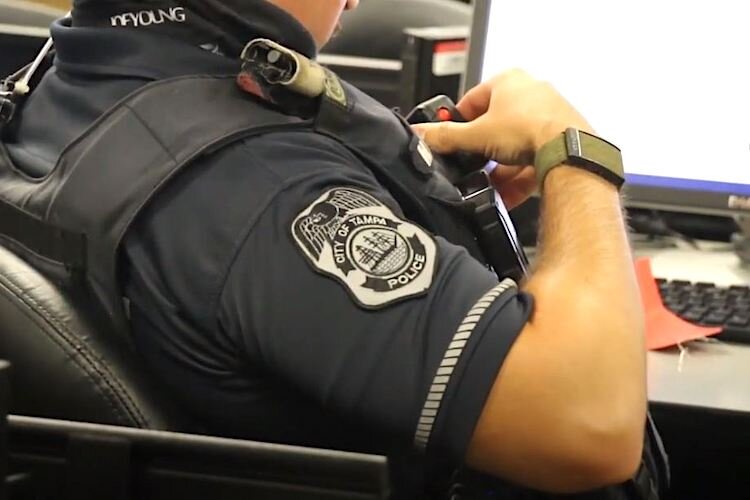Tampa police expand use of body cameras, make policy changes
In the aftermath of the killing of George Floyd in Minneapolis, the Tampa Police Department is expanding use of body cams from a 60-camera pilot program to 650 cameras that monitor police interactions with the public.
The expanded use of body cameras this summer by Tampa Police Department patrol officers and corporals is one of several steps taken recently as a way to be more effective in the community and more accountable to supervisors and to the public.
The body cameras will be monitored regularly by supervisors and the department’s Real Time Crime Center.
This is just one initiative the department has undertaken in the aftermath of nationwide protests since George Floyd was killed by a Minneapolis police officer who held him in a chokehold, a restraint method banned more than 20 years ago in Tampa.
The department has expanded its use of body cams from a 60-camera pilot program to 650 cameras that monitor police interactions with the public. The Tampa City Council approved the purchase in June when it refinanced three existing bonds to pay for them. The department also received a $600,000 federal grant to help purchase the cameras.
“The Tampa Police Department has put several initiatives in place since protests began in May,” says Jamel Lanee’, public safety information officer for the department. “We’ve also updated language to some of our policies to reflect training that was already being done.”
For example, she says, officers have a duty to intervene to prevent or stop wrongdoing by another officer when it is safe and reasonable to do so and that is now written in its policy. And even though chokeholds are prohibited and have been for years, it is now added to the department’s policy language. Additionally, Lanee’ says, officers are trained in de-escalation techniques throughout the year.
The city is also looking into partnerships with health experts who can work alongside officers, Lanee says. Advocacy groups have called for a more expanded use of social workers and mental health professionals to work alongside police on calls, as needed.
The police body cameras will provide “additional layers of transparency, accountability, and protection for officers and the public,” the department says in a press release. “Public records requests for body-worn camera video will be made accessible through GovQA.com.”
The city police department already has a Community Advisory Board in place for oversight.
“Changes to give the board more duties have been proposed to council members,’’ Lanee’ says. “It has been proposed for the board to take a more hands-on approach in several areas of the department such as the hiring process and more input on disciplinary action.”
Community oversight boards are one of the changes protestors have called for over the past few months after several high-profile incidents of police use of excessive force. It is also something recommended by the anti-police violence group, Campaign Zero, which has an active campaign to take all matters of discipline out of police union contracts.
Chief Brian Dugan also uses a Community Advisory Team made up of selected members from various communities of Tampa who meet with him one-on-one to discuss any policing matters in their areas. This team was also established as a result of public concerns over police actions across the country.
The Community Advisory Team was created to help Dugan maintain an open dialogue between the community and the department, to rebuild trust, and to generate new ideas for community policing.















